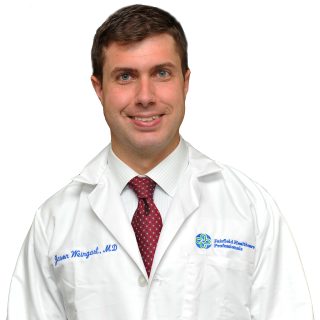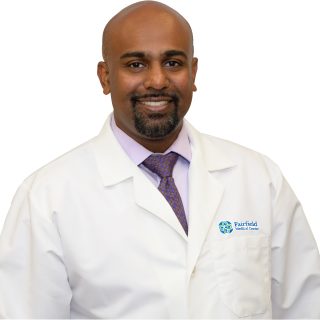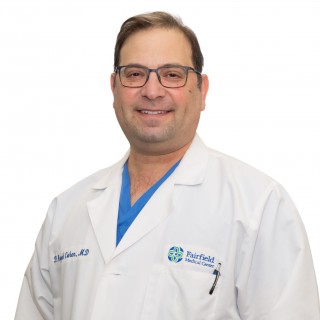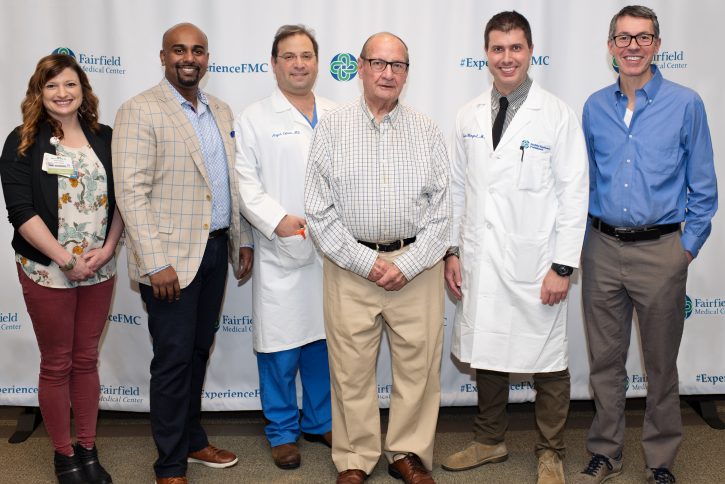
Article originally published November 19, 2020.
When Fairfield Medical Center’s Structural Heart Team performed the organization’s first transcatheter aortic valve replacement (TAVR) procedure on Nov. 20, 2019, they knew it would save lives. Now, one year later, providers, patients and families are reminiscing on the changes made possible by this minimally invasive valve replacement technology.
Patients whose heart valves have been damaged as the result of a condition called aortic stenosis are the prime candidates for the TAVR procedure. Aortic stenosis causes symptoms such as shortness of breath, fatigue, chest pain and pressure, dizziness, fainting, heart palpitations and, in severe cases, heart failure. Patients who have undergone TAVR at FMC during its premiere year are now enjoying a much-improved quality of life – a feat accomplished without enduring open-heart surgery or traveling back and forth to large city centers.
Interventional cardiologists Drs. John Lazarus and Jason Weingart, along with cardiothoracic surgeon Dr. P. Aryeh Cohen, have acted as guiding forces in the organization’s implementation of TAVR, as well as the creation of FMC’s Structural Heart Program. The service – which was specifically designed to diagnose and treat conditions of the heart’s valves, walls and muscles – has been largely successful because of these cross-specialty partnerships. “Dr. Cohen and his surgical team have been tremendous assets,” Dr. Lazarus said. “Without them, we would not be where we are today – and neither would our patients.”
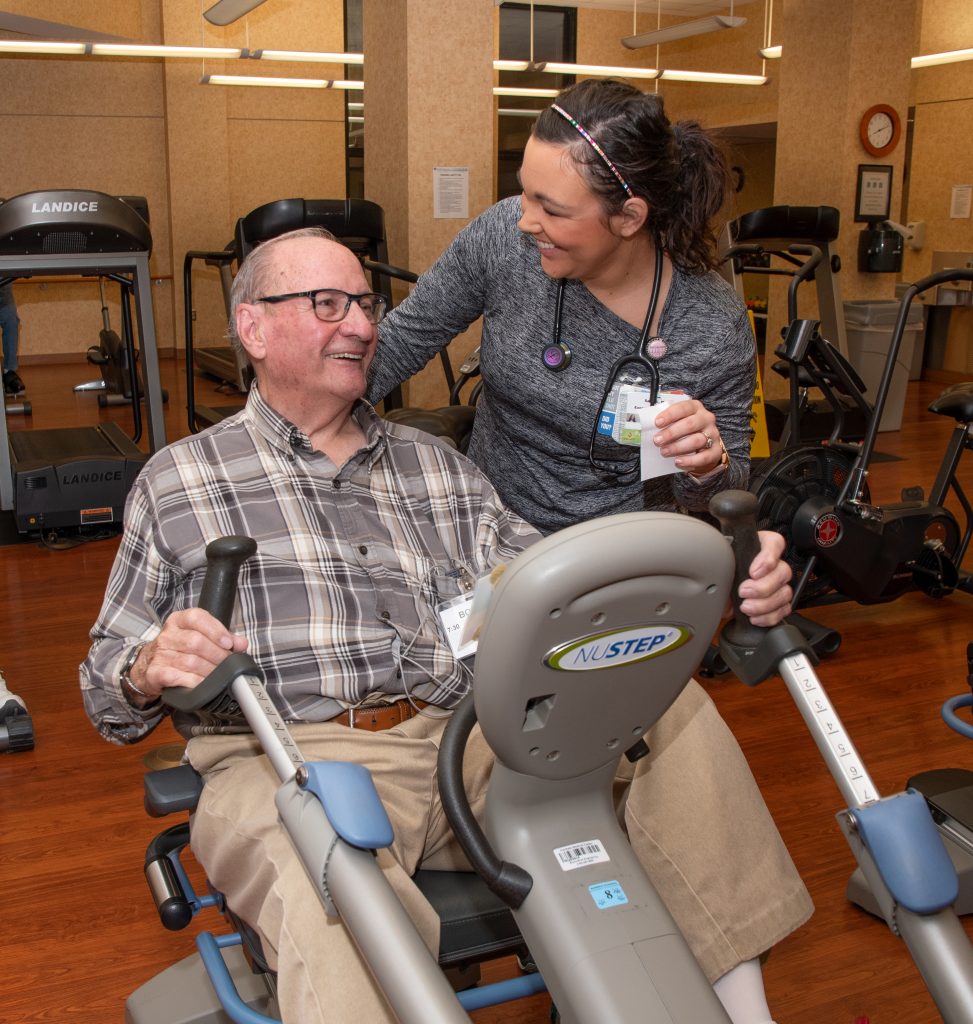
The team said the drastic improvement they have seen in patients who undergo the TAVR procedure is truly remarkable
“I’ve had a patient dance in the clinic to demonstrate how great they feel after their procedure,” Dr. Lazarus said. “Others have shared how grateful they are for the ability to do simple tasks – like rising from a chair unassisted – and more complex feats, like going hunting when they thought those trips were a thing of the past. I’ve said this all along, but this procedure is about more than helping patients live longer, it’s about helping them live better.”
Structural Heart Program nurse navigator Abby Grubb, CNP, who guides patients through the valve replacement process from beginning to end, can attest to the dramatic changes seen in patients – sometimes right away. “Within a month of their TAVR procedure, one patient was able to walk around Alley Park without stopping to rest – before that, they were taking 4-5 breaks to complete the circuit,” Abby shared. “It’s exciting to see and hear about those improvements, to know that the care we’ve provided has made such a difference.”
Aortic stenosis, which is caused by a narrowing of the aortic heart valve, is one of the most common – and most serious – forms of structural heart disease. The condition often develops in healthy individuals as a result of the normal aging process, typically in those 60 years and older. A history of rheumatic fever, congenital heart defects, high blood pressure, kidney disease, diabetes or high cholesterol may contribute to an increased risk for valve disease. If left untreated, the condition can be debilitating and fatal.
“This procedure is truly lifesaving,” Dr. Weingart shared. “It’s such a pleasure to see these patients improve and listen to the stories of all they have done since their procedure – and how much better they felt doing it. I’m just thrilled to be a part of it.”
If you are exhibiting any symptoms of structural heart disease, or are concerned that you or a loved one may be suffering from a related condition, speak with your primary care provider about referral to the Structural Heart Program at Fairfield Medical Center. For more information, call 740-689-4480.
To learn more about FMC’s Structural Heart Program, click here.
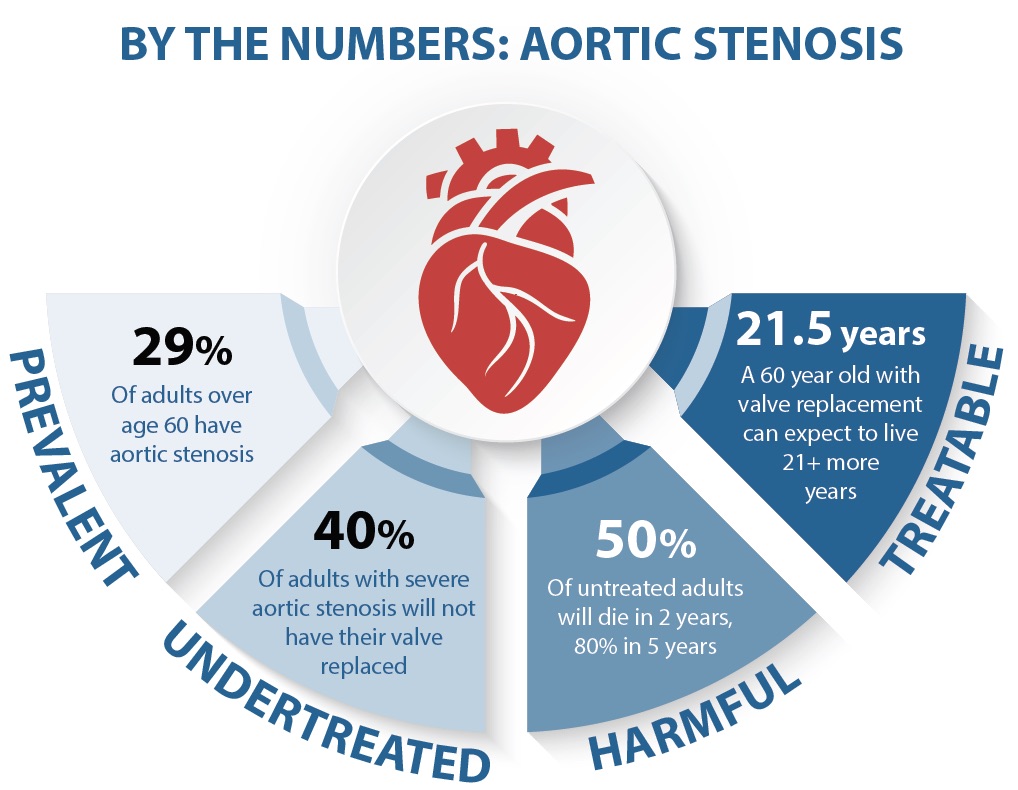
“I feel like I’ve been given my life back.”
Bob Jones, 86, became FMC’s first TAVR patient on Nov. 20, 2019.
Learn more about his story by clicking here.
